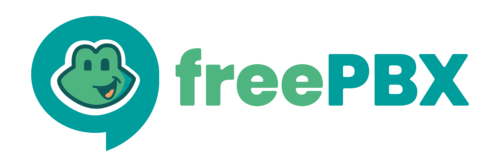Since it’s inception a decade ago, FreePBX has grown to be the world’s most popular open source PBX platform. Our latest analytics tell us that we are getting close to 2 million installed production systems located in 210 countries and territories across the world.
Having such a widespread global presence means we must look at the entire world when developing FreePBX. Localization and multiple language support in FreePBX has become a top priority. As with most software platforms, developers typically code for their native language with little motivation for translations or multi language support. Over the years the FreePBX Community has seen folks dedicated to localization come and go from the project. Several years ago a community member by the name of Mike Carlsson approached our own Philippe Lindheimer and the two worked on the initial support for multiple languages. Since then overall language support has grown in FreePBX, yet it was always lacking more community input. In the end the processes needed to generate different languages was difficult and complicated. We depended on community members to understand the translation process, and developers to enable their modules, manually prep and process them for translations.
About six months ago we were approached by representatives of QLOOG, Inc a VoIP service provider and Schmooze Com authorized reseller based in Kobe, Japan, about adding Japanese support into FreePBX. QLOOG developers Kevin McCoy and Dave Bouchard partnered with the Schmooze/FreePBX developers and put in thousands of hours along with our developers to completely rework the infrastructure in place for translations using a new localization tool, while at the same time completely translating FreePBX into Japanese.
Pictured Kazuhiro Arao, Tony Lewis, Preston McNair, Kevin McCoy
“FreePBX has become our go-to platform for creating feature-rich and customized solutions for clients,” said Kazuhiro Arao, CEO of QLOOG. “This partnership is not only about new opportunities – it’s also a sign of our commitment to offering a robust and open PBX solution that is fine-tuned to the Japanese market.”
So what is this new localization tool? If you have been following our blogs and development over the past year, we moved our source control management system from a centralized SVN server to a distributed GIT server at http://git.freepbx.org/ with mirroring back to http://www.github.com/freepbx. This move has allowed us to integrate Weblate into FreePBX. Weblate is a free web-based translation tool with tight GIT integration. It features a clean and simple user interface, propagation of translations across subprojects and quality checks and automatic linking to source files. This means once translations are done and approved they will go directly into our source to be included into the next release of said modules. You can learn more about Weblate from this FLOSS podcast: FLOSS Weekly 249: Weblate . (Speaking of which, did you checkout OUR FLOSS podcast? FLOSS Weekly 276: FreePBX )
Weblate enables us to provide a continuous translation process, which means as modules and core PBX functions are developed, translations can follow closely behind. We also have defined access control mechanisms, so we have control over who has rights to push translations, and we can easily review contributions for accuracy. Currently Weblate supports over 150 languages out of the box and provides reports that allow us to quickly see the status of translations of the entire project, right down to the module level.If you are interested in providing Translations for FreePBX you can get started by submitting a Code Submission. Agreement located at: http://literature.schmoozecom.com/EUA/CodeSubmissionsAgreement-r3.pdf
So far around 59% of FreePBX has been properly translated which you can quickly see by looking at the button to the right ![]() .
.
HOW TO USE WEBLATE TO TRANSLATE FREEPBX
The steps for translating FreePBX are simple. You can either work by module or by language. If you wish to work by module then you just need to navigate to http://weblate.freepbx.org/projects/freepbx. You then presented with a list of modules and their translation statuses like the picture below:
Alternatively you can work by language by navigating to http://weblate.freepbx.org/ and clicking on the languages tab.

Once you are in a module you’ll have several translating options available to you. First off you’ll see the translation status for each language for this particular module.

Once you click on a language from here you can go through adding and editing translations per sentence.

Once everything is done and you think it’s good you can push the changes forward into our git repository.
HOW TO CHANGE THE LANGUAGE UTILIZED BY YOUR FREEPBX INSTALLATION
Currently FreePBX allows you to work in multiple languages. Using the advanced menus you can enable language selection in the GUI, and switching between them is easy and free. 
Once you enable it you can easily change to a supported language directly from the main admin GUI. This change will allow you to display menus, dialog boxes, Help topics and other text in your selected language.

 On Behalf of the FreePBX/Schmooze Team,
On Behalf of the FreePBX/Schmooze Team,

Preston McNair, VP of Sales and Marketing, FreePBX/Schmooze Com, Inc.
Connect with Us:![]()
![]()
![]()
![]()
![]()
![]()
![]()
Copyright © 2014, Schmooze Com, Inc. FreePBX is a Registered Trademark of Schmooze Com, Inc.
All Rights Reserved.
About Schmooze Com and FreePBX
Schmooze Com, Inc. manages FreePBX, the most widely deployed open source PBX platform in use across the world. Schmooze also provides FreePBX Certified Appliances, SIPStation SIP trunks, FreePBX Pro Modules, professional support, a certified reseller and training program and, in addition to FreePBX, develops the PBXact and PBXtended turnkey PBX platforms. FreePBX has over 1 million active production system in use across the globe today, and continues to add over 20 thousand new installations per month.
http://www.schmoozecom.com/ https://www.freepbx.org/
FreePBX® and the Schmooze logo are registered trademarks of Schmooze Com, Inc.
About QLOOG
QLOOG is a VoIP service provider and Schmooze Com Authorized Reseller based in Kobe, Japan. QLOOG specializes in Asterisk deployment, development, and support, along with telephony solutions that guarantee robust connectivity with all of Japan’s major carriers. The company serves more than 300 business with 40,000 active extensions, and also offers services including call-center construction, hosted IP-PBX systems, global inter-site communications, and disaster recovery server solutions. The QLOOG name was born as a hybrid of Q (quality, question) and a creative play on LOG (logic, logarithm). QLOOG’s name shows what the company does best – offering adaptable, real-world answers in pursuit of ideal solutions for clients. More information is available at http://www.qloog.com/en/



